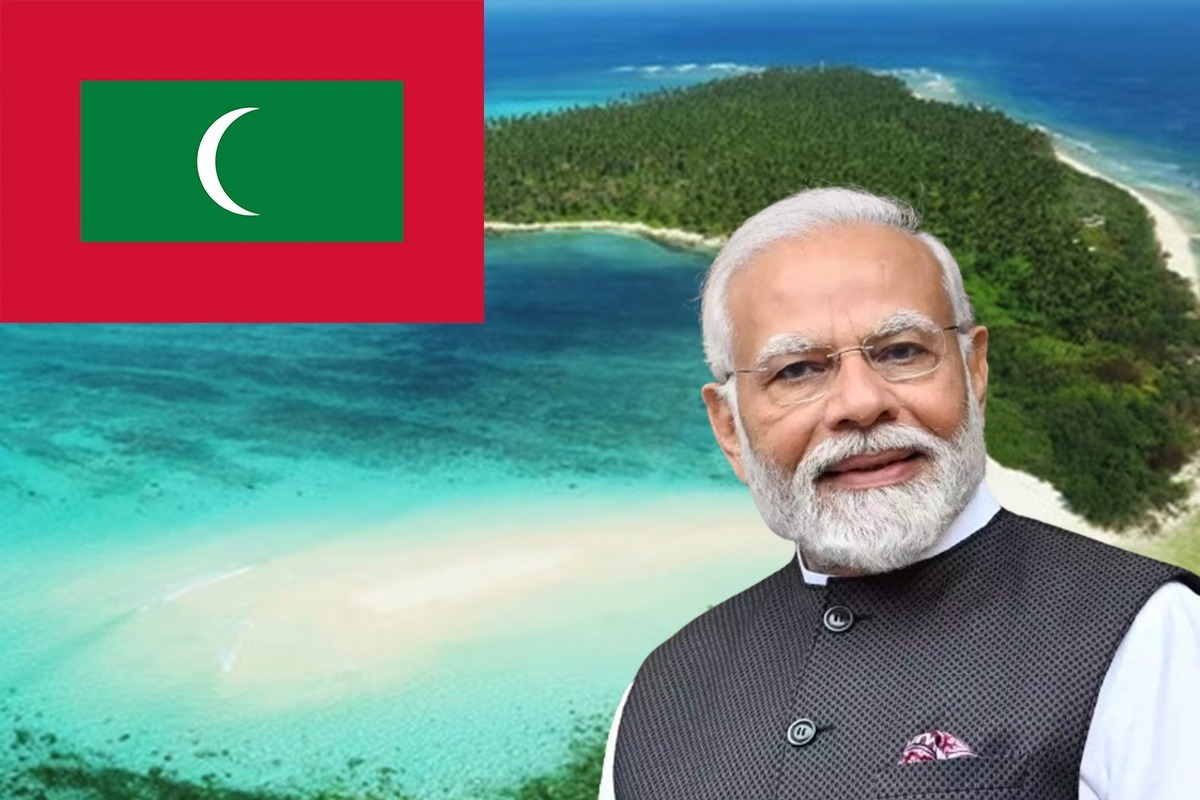
It was a good move to showcase Lakshwadeep as an attractive tourist destination for Indians and to counter the growing influence of China in the neighbouring Maldives, a popular beach resort for Indian travellers.

Prime Minister Narendra Modi’s visit to Lakshwadeep, a cluster of 36 islands in the Laccadive Sea of the Indian Ocean , on January 2 and 3, 2024, was more than just a routine tour of a union territory. It was a good move to showcase Lakshwadeep as an attractive tourist destination for Indians and to counter the growing influence of China in the neighbouring Maldives, a popular beach resort for Indian travellers.
PM Modi inaugurated several developmental projects in Lakshwadeep, such as the Kochi-Lakshwadeep Islands Submarine Optical Fiber Connection, which will enhance internet connectivity and digital services in the islands. He also interacted with the locals, enjoyed the scenic beauty of the islands, and even went snorkelling. He shared pictures and videos of his visit on social media and urged Indians to visit Lakshwadeep and explore its natural and cultural wonders.
ALSO READ: Epstein files expose US elite rot
PM Modi’s pitch for Lakshwadeep tourism is in line with his ‘Vocal for Local’ campaign, which aims to promote domestic products and services and boost the self-reliance and resilience of the Indian economy. It is also a subtle message to the Maldives, which has been drifting away from India and leaning towards China in recent years.
The Maldives, a chain of nearly 1,200 islands in the Indian Ocean, has been a traditional ally and partner of India, with close historical, cultural, and economic ties. However, since the election of President Mohamed Muizzu in 2023, the Maldives has shown a pro-China stance and has signed several agreements and deals with Beijing, such as the leasing of 10 islands, the construction of the China-Maldives Friendship Bridge, and the inclusion in the Belt and Road Initiative. The Maldives has also asked India to withdraw its military presence from the islands and has made some derogatory remarks against PM Modi and India.
These developments have raised concerns for India, which sees the Maldives as a vital part of its neighbourhood and maritime security. China’s growing footprint in the Indian Ocean Region poses a strategic challenge and threat to India’s interests and influence. India has tried to engage and persuade the Maldives to maintain a balanced and diversified foreign policy and has offered assistance and cooperation in various fields, such as health, education, infrastructure, and defence. However, the Maldives has shown little interest or appreciation for India’s gestures and has continued to favour China.
ALSO READ: Claude Arpi unmasks geopolitical deceit of Pakistan’s Kashmir charade
In this context, PM Modi’s visit to Lakshwadeep is a smart move to counter the Maldives’ pro-China tilt and to assert India’s presence and primacy in the region. By promoting Lakshwadeep as an alternative to the Maldives, PM Modi is not only boosting the local tourism industry and economy, but also sending a signal to the Maldives that India has other options and partners in the region, and that it cannot take India’s friendship and support for granted. PM Modi is also appealing to the Indian tourists, who constitute the largest source of visitors to the Maldives, to choose Lakshwadeep instead, and to show their patriotism and solidarity with India.
PM Modi’s visit to Lakshwadeep is a positive and proactive step to strengthen India’s position and leverage in the region and to counter China’s expansionist and aggressive agenda. It is also a reminder to the Maldives that India is a reliable and generous neighbour and that it should not alienate or antagonize India for the sake of China. India hopes that the Maldives will realize its mistake and return to the path of friendship and cooperation with India and that the two countries will work together for the peace, prosperity, and stability of the region and the world.